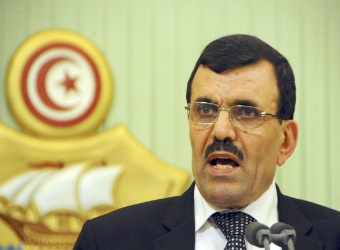A situation like the one unfolding in Egypt is unlikely to happen in Tunisia – the cradle of the Arab Spring – Prime Minister Ali Larayedh of the Islamist led-government in Tunis, said late on Monday.
“Our approach is characterized by consensus and partnership,” said Larayedh, who is also a senior leader of the moderate Islamist Ennahda party.
“The possibility of an Egypt scenario is unlikely in Tunisia because I have great confidence in the awareness of Tunisians and their ability to measure the potential of their country,” Larayedh said in an interview on France 24.
In Tunisia, the divide between secularists and Islamists has widened since the ouster of former President Zine El Abidine Ben Ali more than two years ago. Unrest subsequently convulsed much of the Arab world, toppling or challenging entrenched rulers in Egypt, Libya, Yemen, Bahrain and Syria.
The role of Islam has grown in Tunisian society and been enshrined on a new constitution, but the divisions are seen as less severe than in Egypt.
Millions of Egyptians took to the streets on Sunday to protest the government of President Mohamed Morsi and his Muslim Brotherhood and demand early presidential elections.
Last March, Tunisia’s Ennahda party responded to pressure from the secular opposition and accepted the appointment of independent ministers. The opposition has said Ennahda wants to control all aspects of the state.
On Monday, the United Nations said it feared the implications of the Egyptian situation on other countries in the region.
“The world is watching Egypt, and the fate of the transition process in Egypt will have a significant impact on the other countries undergoing transition in the region,” said Eduardo Del Boy, an assistant U.N. spokesman.
Source: Reuters


